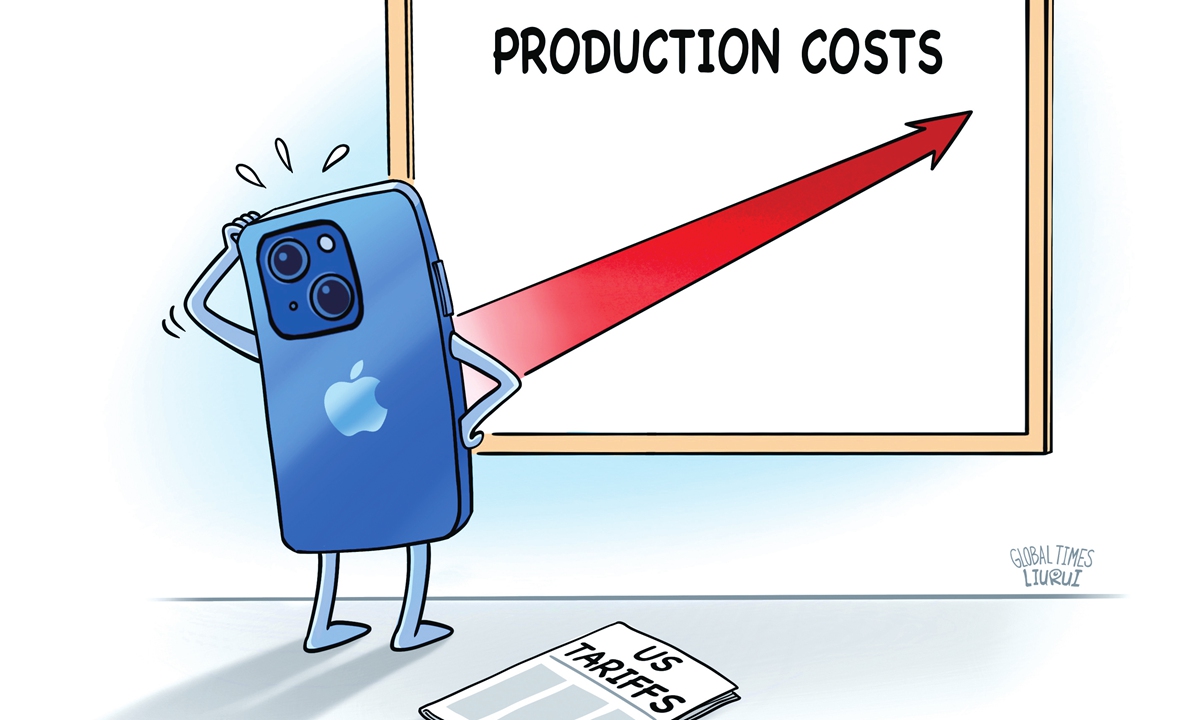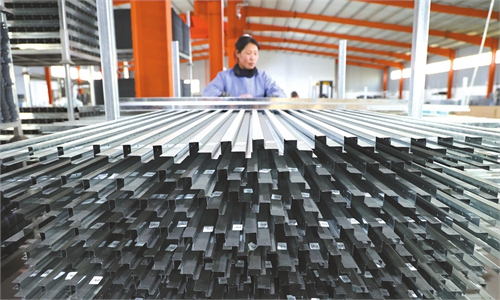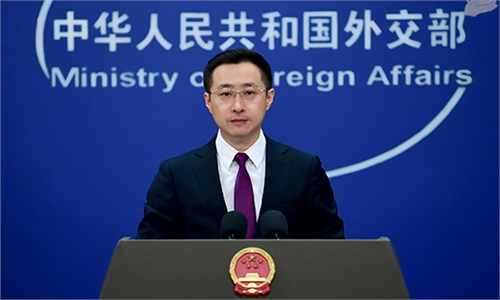How US abuse of tariffs against China affects Apple – and why China holds the cards

Illustration: Liu Rui/GT
In recent days, international media have been paying close attention to Apple CEO Tim Cook's warnings about the potential impact of the tariff war on Apple's earnings. As one of the world's most valuable companies, Apple has a significant influence on the US economy, the global economy and people's lifestyles. The challenges that Apple faces are inevitably the challenges posed by the tariff war initiated by the US. The New York Times even published an article calling on Americans to replace their iPhones, while Bloomberg ran a headline: "Apple Reaches Critical Juncture With Tariffs, AI and Services Turmoil." This likely means that America's tariff war has also reached a critical juncture.
Apple CEO Tim Cook recently announced during the company's second-quarter earnings call that US tariffs on Chinese imports will cost the company an extra $900 million in the June quarter alone.
In response, Apple plans to shift most of its iPhone assembly to India for the US market. The company has already moved the assembly of iPads, Macs, Apple Watches and AirPods to Vietnam to reduce its dependence on China.
Irrespective of where production shifts, the inescapable consequence of Washington's tariffs will be a surge in prices, presenting a significant challenge for American consumers.
Unlike shoes or hats, where you might buy less if prices increase, smartphones, especially iPhones, are a different story. iPhones, which currently dominate about half the US smartphone market, have become an integral part of the people's daily lives. Let's face it: Many Americans would feel lost without their iPhones, even for a day or just a few hours.
Politicians in DC have long hoped Apple would bring production back home. However, Apple's dependence on China for production and market growth has only deepened since the Obama era. The US cannot take on iPhone production in terms of technology or workforce. About 90 percent of Apple products are now assembled in China, not to mention the thousands of apps developed for Apple devices.
If the US were to mandate that all iPhone assembly be done domestically, the financial implications would be significant. Wedbush analysts estimate that the cost of a single iPhone could triple, reaching around $3,500. Other calculations suggest that such a move could require hundreds of billions of dollars. These figures underscore the substantial economic impact of moving iPhone assembly back to the US.
Apple has shifted some assembly lines to countries such as India and Vietnam, but many components are still made in China. That's because China continues to lead the world in key manufacturing technologies, and there aren't easy alternatives for many parts. In other words, Apple's supply chain is tightly linked to China. This fact also means China holds essential the cards in any trade dispute.
A recent New York Times article entitled "You Should Think About Replacing Your iPhone - Now" points out that the US lacks the manufacturing expertise, competitive industrial clusters, and even the population density required to make Apple products en masse.
Some in Washington argue that China benefits more from China-US trade. But look at Apple: In 2023 alone, Apple's revenue from the Greater China region reached $73 billion - accounting for about 19 percent of its global revenue.
China will continue to innovate and grow, no matter what. In the long run, what will the US stand to lose? Anyone with a bit of strategic vision already knows the answer.



